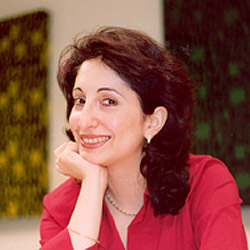Recent Stories
- Businesses urged to tap into science and technology young talent
- Digital relay baton enables remote crowd cheering of athletes
- Health Innovation Campus moves a step closer
- £7.1 million R&D boost for North West businesses
- Centre of excellence created for the next industrial revolution
- Artificial intelligence toolkit spots new child sexual abuse media online
- Strategic partnership set to help plug cyber security skills gap
- What your choice of smartphone says about you
- InfoLabTree: Discover the Story
- novi.digital Launch Event - 'An Event to Help Businesses Grow Online'
RSS Feeds
RSS feeds can deliver the latest InfoLab21 news and events direct to your browser without you having to visit the website.
In most browsers you can click on an RSS link and choose to subscribe to the feed to add it to your favourites or bookmarks.
InfoLab21 Leads £3.24m Creativity Project
Story supplied by LU Press Office
 Dr. Corina Sas
Dr. Corina Sas
Computer Scientists at InfoLab21 are leading a £3.24 million project investigating the role of creativity in science and technology.
Computer scientists, psychologists, artists and designers from across Europe have embarked on the four-year project which aims to advance the current understanding of the creative design process applied in scientific and technological problem solving.
Poetry, art and music will all come under the microscope of the research network which brings together seven institutions from the UK, Denmark, the Netherlands, Italy and Portugal and benefits from the participation of Philips Research as an industrial partner.
Researchers hope their work will lead to the elaboration of:
- Theories and models of creative processes and creative problem solving
- Methods, techniques and systems to support creative design processes and creativity training.
The project - called DESIRE - is led by Dr. Corina Sas from the Computing Department in Lancaster University's InfoLab21.
She said: 'Writing poetry, designing computer programmes or solving research questions all demand a high level of creative thinking.
"This work sets out not only to try to get a better understanding of those creative processes but also to find new ways of supporting creative problem solving.
"Our research findings will be just as applicable whether you are building an interface for a wearable computer (such as a jacket that can read your heart rate) or working in the field of augmented reality - technology which enables you to overlay information from the web onto the real world creating an 'augmented' view of the world around us."
DESIRE is an Initial Training Network funded by the European Commission under the 7th Framework - Marie Curie Actions Programme.
Thirteen PhD students and two Post Doctorates are taking part in the intensive research training programme, which includes industrial secondments and four large events open to the relevant research communities.
The first event was a summer school, which took place in Gargnano, Italy in September 2009. Thirty-one students participated, most of them with a background in computer science, design, human-computer interaction or communication science.
Future events include:
- a conference in Aarhus, Denmark on 16-17 August 2010
- a summer school in Portugal between 19-25 September 2010
- a conference in the Netherlands in 2011.
Details about these events will be made available on the project website at the link below.
Wed 03 February 2010



